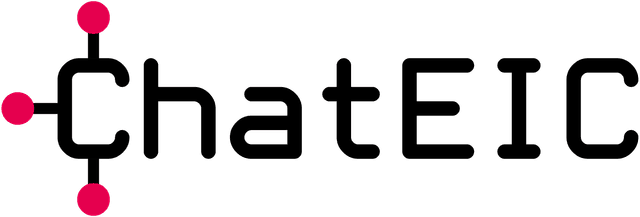
Identifying a Broad Vision for an EIC Accelerator Project (SME Instrument Phase 2)
The introduction is an important aspect of an EIC Accelerator (SME Instrument Phase 2) application and, even though it is not specifically mentioned in the template, it sets up much of the perceived project impact (see EIC Accelerator Writing: Providing the Missing Link).
In general, the introduction should be as broad as possible and unify all of the potentials a certain technology has in a given environment. This means that the technology, in turn, should also be viewed as expandable since the current application of the prototype might not reflect what a fully mature product would have to offer.
In summary, next to other essential parts which should be aligned to improve the projects perceived impact (see Using the Evaluation Summary Report), a grant application should adhere to the following principles:1. The Great Vision
It is often useful for a professional writer or consultant to strip down the project into its bare essence and to ask: "What is the biggest story I can tell with these ingredients?" This means re-assessing the applicant's past accomplishments, their customers, their prototype, their selling points and the future potential of the technology.
In order to be successful with an EIC Accelerator application, the project should not only embody "profit" and "feasibility" but also sell a vision that is out of the ordinary - i.e. a broad impact.
A startup or Small and Medium-Sized Enterprise (SME) should be aware that what makes for a good company does not necessarily make for a good grant application. The grant financing, and especially the EIC Accelerator, is highly competitive and only those companies who can combine a great innovation with an even greater vision are able to persevere through the 2-step evaluation process (i.e. written application and in-person pitch).
2. Aligned with the EU's Vision
To answer the question "What does the EU want?", directives, targets and policies should always be considered as well as the specific key enabling technologies, as defined by the European Commission. These can change in short time frames which is why new developments should periodically be researched for new grant submissions as well as during editions and resubmissions of a previously rejected application.
In general, it is always useful to fully align the vision of a project with what the EU cares about. In almost all cases, a well-aligned narrative can be created around a core technology and company which maximizes the project's impact.
As a side note, it should also be considered if there are aspects of a particular project or technology that the EU might not be interested in. There are critical areas that should be avoided if they are directly violating key targets of the European Commission. These could be concerning fossil fuels, embryonic research, dangerous human testing or political topics.
3. Future Proof Technologies and Business Models
It is too easy to lead a business and only have a very narrow view of the future. Understandably, most startups are concerned with their cash flow and their immediate financing status rather than considering what the future holds 10 to 20 years down the line.
Still, the EU, and investors in general, will look at the longevity of a project just as much as at its current company health. It is important to consider if a certain project could be disrupted in the following years either through regulations, alternative technologies, changing user demands or similar mechanisms.
At the very least, it should be assured that there are no critical stakeholders in a given grant application which will be obviously outdated in only a few years (i.e. the phase-out of fossil fuels, the transition to platooning/autonomous driving or blockchain-enabled cross-border payments).
4. A Realistic Ability to Scale
A fourth factor to consider for a successful EIC Accelerator application is a company's ability to grow in a certain industry. This is centrally important to the EU since scaling and growth are key factors for the evaluation and required for a project to reach its envisioned economic impact.
There is a great difference between having small amounts of traction with a certain prototype versus scaling to a reasonable size while gaining market share from established competitors. The latter usually have mechanisms to react to commercial threats in the market such as pricing leverage at scale (i.e. pushing down the price to outcompete startups), copying competing products (i.e. larger teams and R&D expenditures) or by poaching customers based on a stronger branding & trust.
A commercial strategy which is realistic and relates to such threats is indispensable in a grand future vision since its neglect would make the proposal sound too good to be true.
Summary
A key feature of a successful EIC Accelerator Phase 2 application is to always provide a great vision since this will define the interest the evaluators have in the project and make it stand out. The four core pillars of the project vision are:
- Expanded vision for maximum impact
- Aligned to what the European Union cares about
- Future-proof and no obvious deal-breakers
- Realistic scaling and mitigation measures
These tips are not only useful for European startups, professional writers, consultants and Small and Medium-Sized Enterprises (SME) but are generally recommended when writing a business plan or investor documents.
Deadlines: Post-Horizon 2020, the EIC Accelerator accepts Step 1 submissions now while the deadlines for the full applications (Step 2) under Horizon Europe are listed below. The Step 1 applications must be submitted weeks in advance of Step 2. The next EIC Accelerator cut-off for Step 2 (full proposal) can be found here. After Brexit, UK companies can still apply to the EIC Accelerator under Horizon Europe albeit with non-dilutive grant applications only - thereby excluding equity-financing. Switzerland has resumed its participation in Horizon Europe and is now eligible for the EIC Accelerator.
EIC Accelerator Step 1 Deadline 2025
Contact: You can reach out to us via this contact form to work with a professional consultant.
AI Grant Writer: ChatEIC is a fully automated EIC Accelerator grant proposal writer: Get it here.
EIC Accelerator: EIC Accelerator delivers flexible funding options including blended finance (€2.5M grant + €0.5M-€10M equity), grant-only (up to €2.5M), or equity-only arrangements for scale-up and market deployment of breakthrough innovations. The initiative targets SMEs, start-ups, and small mid-caps with up to 499 employees. Technology areas include Biotech, Engineering, Artificial Intelligence, Energy, Quantum, Aerospace, Advanced Materials, and Semiconductors. Get Started
EIC Pathfinder: EIC Pathfinder delivers up to €3 million for Open calls and up to €4 million for Challenge-based calls to support early-stage research and development with proof-of-principle validation. The initiative requires research consortia with a minimum of 3 partners from 3 different countries, including universities, research organizations, and SMEs. Primary technology focus areas include Health/Medical, Quantum Technologies, AI, Environmental/Energy, and Advanced Materials. Get Started
EIC Transition: EIC Transition delivers up to €2.5 million in funding to overcome the 'valley of death' gap between laboratory research and market deployment, emphasizing technology maturation and validation. The initiative supports single legal entities or small consortia of 2-5 partners including SMEs, start-ups, spin-offs, and research organizations. Key technology domains include Health/Medical Technologies, Green/Environmental Innovation, Digital/Microelectronics, Quantum Technologies, and AI/Robotics. Get Started
EIC STEP Scale-Up: EIC STEP Scale-Up delivers significant equity investments of €10-30 million for established deep-tech companies prepared for hyper-growth and large-scale expansion. The initiative targets SMEs or small mid-caps with up to 499 employees who have obtained pre-commitment from qualified investors. Primary focus areas include Digital & Deep Tech (Semiconductors, AI, Quantum), Clean Technologies for Net-Zero objectives, and Biotechnologies. Get Started
EIC Pre-Accelerator: EIC Pre-Accelerator represents a pilot initiative delivering €300,000-€500,000 in funding for early-stage deep-tech development and preparation for the EIC Accelerator program. This program is exclusively accessible to single SMEs or small mid-caps from 'Widening countries' to foster regional innovation development. The initiative encompasses deep-tech innovations across physical, biological, and digital domains. Get Started
EIC Advanced Innovation Challenges: EIC Advanced Innovation Challenges represents a new pilot initiative delivering €300,000 (Stage 1) and up to €2.5 million (Stage 2) for breakthrough deep-tech innovations through ARPA-style staged funding mechanisms with integrated demand-side engagement. This initiative targets single entities or small consortia (2-3 partners) including SMEs, start-ups, and research organizations. Primary focus areas include Physical AI for autonomous robotics applications and New Approach Methodologies (NAMs) for animal-free biomedical testing, with TRL 4 entry requirements and demonstrated end-user commitment. Get Started
Eureka Network: The Eureka Network delivers various international collaborative R&D initiatives such as Network Projects, Clusters, Eurostars, Globalstars, and Innowwide, providing funding from €50K to €6.75M per project based on the specific initiative. This network emphasizes market-driven innovation and deep-tech advancement across multiple technology sectors including ICT/Digital, Industrial/Manufacturing, Bio/Medical Technologies, Energy/Environment, Quantum, AI, and Circular Economy. Eligible participants include SMEs, large enterprises, research organizations, universities, and startups, with Eurostars particularly focused on R&D-performing SMEs. Get Started
Eurostars: Eurostars represents a joint EU-Eureka initiative delivering €50K-€500K for international R&D collaboration specifically led by SMEs. The program adopts a bottom-up approach, accepting projects from all technology fields without predefined thematic restrictions. R&D-performing SMEs must lead the consortium and demonstrate significant R&D activities. Get Started
Innovation Partnership: Innovation Partnership enables collaborative innovation between public and private sectors with typical funding of €1-5 million per project. The initiative supports cross-sectoral strategic technologies through public-private partnerships and consortia. Projects concentrate on addressing societal challenges through collaborative innovation approaches. Get Started
Innovation Fund: The EU Innovation Fund delivers substantial funding of €7.5 million to €300 million for large-scale demonstration of innovative low-carbon technologies. The initiative targets clean energy, carbon capture, renewable energy, and energy storage technologies to accelerate the transition to a low-carbon economy. Eligible participants include large companies, consortia, and public entities capable of implementing large-scale demonstration projects. Get Started
Innovate UK: Innovate UK delivers various programs with funding ranging from £25K to £10M depending on the specific initiative, supporting business-led innovation, collaborative R&D, and knowledge transfer. The organization funds projects across all sectors with particular emphasis on emerging technologies and supports UK-based businesses, research organizations, and universities. Programs are designed to drive economic growth through innovation and technology commercialization. Get Started
Industrial Partnership: Industrial Partnership delivers €2-10 million in funding for industrial research and innovation partnerships focusing on manufacturing, industrial technologies, and digital transformation. The initiative supports industrial consortia and research organizations in developing collaborative solutions for industrial challenges. Projects aim to strengthen European industrial competitiveness through strategic partnerships. Get Started
LIFE Programme: The LIFE Programme delivers €1-10 million in funding for environmental protection, climate action, and nature conservation projects across the European Union. The initiative supports environmental technologies, climate adaptation strategies, and biodiversity conservation initiatives. Eligible participants include public authorities, private companies, NGOs, and research institutions working on environmental and climate challenges. Get Started
Neotec: Neotec represents a Spanish initiative delivering €250K-€1M in funding for technology-based business creation and development, supporting the growth of innovative Spanish SMEs and start-ups. The program covers all technology sectors and aims to strengthen Spain's technology ecosystem. Funding is specifically targeted at Spanish technology-based SMEs and start-ups to enhance their competitiveness and market presence. Get Started
Thematic Priorities: EU Thematic Priorities encompass various programs aligned with EU strategic priorities including green transition, digital transformation, health, and security initiatives. Funding amounts vary based on the specific program and call requirements, with projects designed to address key European challenges. Applicant eligibility varies by specific program and call, with different requirements for different thematic areas. Get Started
Any more questions? View the Frequently Asked Questions (FAQ) section.
Want to see all articles? They can be found here.
For Updates: Join this Newsletter!
